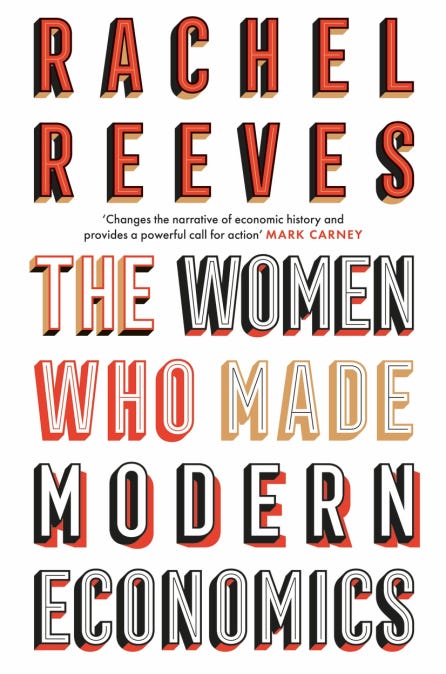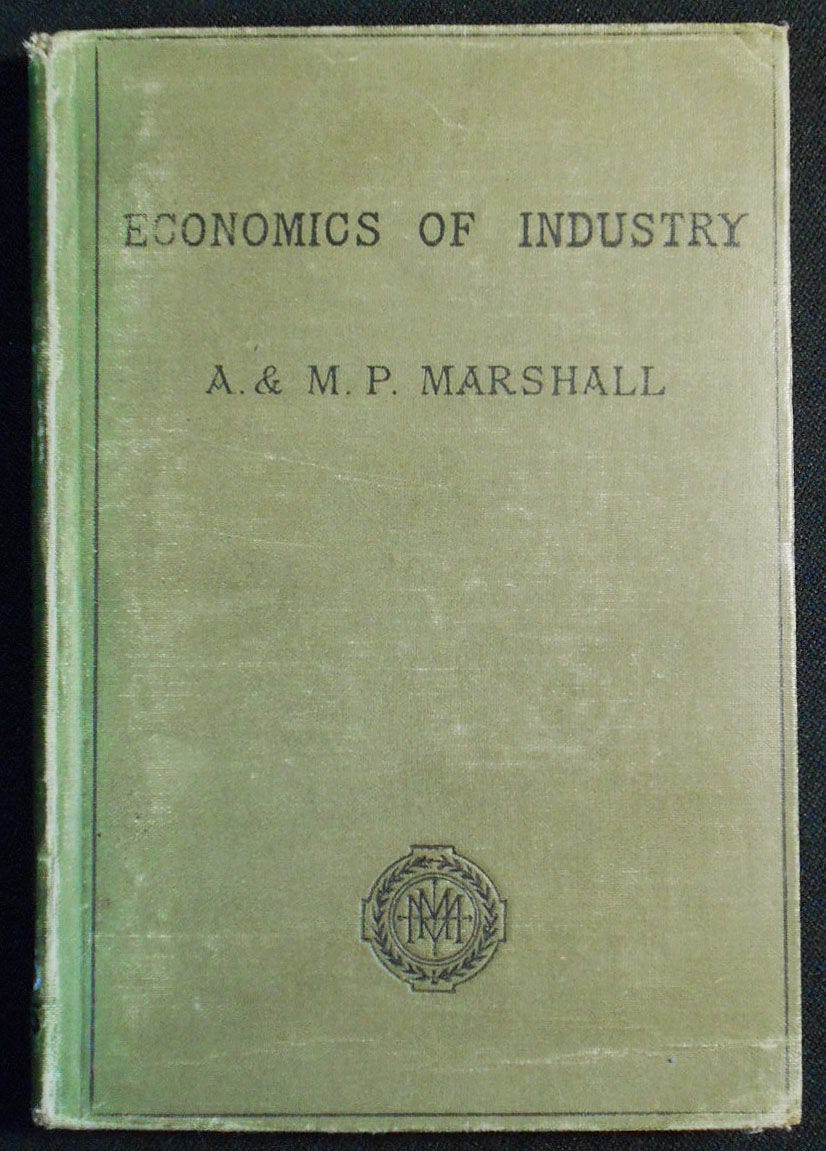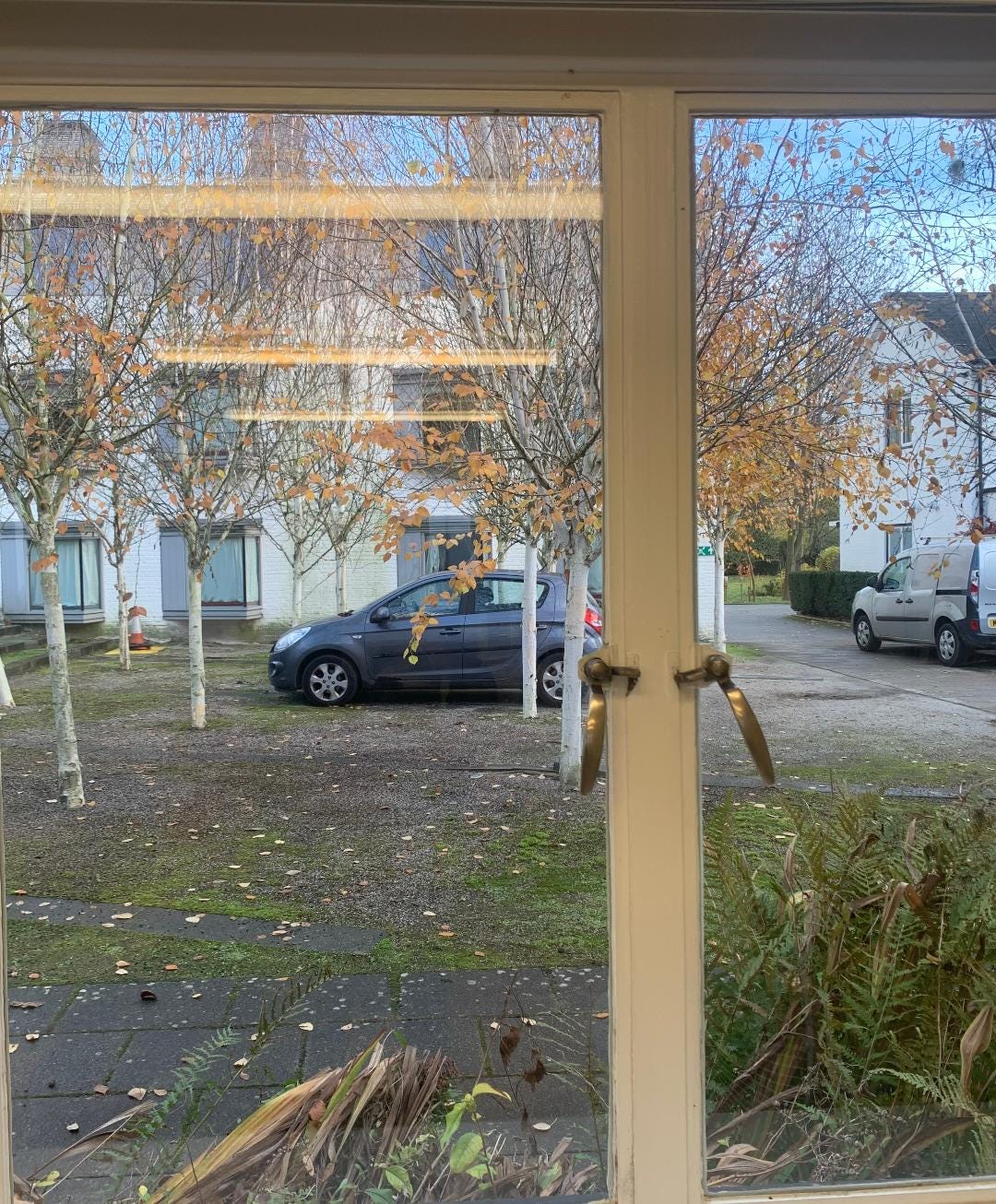A Cambridge Notebook #1
Women in economics | Women's Prize for nonfiction | New exhibitions | Quick links
Hello! And a warm welcome to the first of my Cambridge Notebook series, which will be short and sweet. I have some exciting new, longer posts coming up soon, so look out for those… and thank you so much for reading and sharing this.
Book news
The UK shadow chancellor Rachel Reeves has been making headlines recently after the Financial Times revealed that her newly published book, The Women Who Made Modern Economics, had more than 20 examples of text taken from other sources without acknowledgement. As this FT article of 26 Oct 2023 reports, the book’s publisher Basic Books ‘has admitted factual sentences taken from primary sources should have been rewritten and properly referenced but this did not happen in every case’.
Reeves acknowledges that there are things in her book that really should have been properly referenced (it’s odd that there are no foot- or endnotes) and she promises to do better in future editions.
I’m interested in this story because (a) I’ve been researching and writing about Mary Paley Marshall for ages, and did wonder if any of my own work had been plagiarized, and (b) as far as I can work out, this is one of the few books aimed at a general readership to recognize the lasting influence of Paley Marshall on the economics of industry. Reeves also has chapters on Harriet Martineau, Beatrice Webb and Joan Robinson (who acknowledged her debt to Paley Marshall) and other economists such as Sadie Alexander, the first African American woman to be awarded a PhD in economics.
So yes, I went out and bought The Women Who Made Modern Economics and the answer is (a) no, not that I can see (but I’m still hoping to get a mention next time) and (b) I am delighted that Reeves praises Mary Paley Marshall for her book, The Economics of Industry (1879) which she co-wrote with her husband Alfred Marshall. He later came to dislike it intensely, possibly because it was, as Reeves points out, ‘largely based on ideas developed in Mary’s Newnham College lectures’ and by the 1880s Alfred had turned against the idea of women studying at Cambridge University. Mary Paley Marshall deserves to be recognized for her contribution to the history of economics, both by writing this groundbreaking book and for never flagging in her lifelong dedication to women’s higher education, despite her husband’s opposition.
More modern books: I’m looking forward to hearing more about the upcoming Women’s Prize for Non-Fiction. The 2024 Chair of judges Professor Suzannah Lipscomb emphasizes the point of the prize is to highlight outstanding new nonfiction by women authors, and
to banish the lingering perception that non-fiction is men’s work by showing that authority and expertise are qualities that women possess in spades. This prize will shine a light on talented and often overlooked female writers creating brilliant, groundbreaking and revelatory work in genres that include history, science, philosophy, sport, nature, medicine, psychology and biography.
Coming up soon will be my round-up of the best nonfiction, plus one or two novels (by male and female authors) in my Books of the Year 2023. Meanwhile here’s the view from the archive I’ve been working in this week, the Doshisha Room at Clare Hall Cambridge.
Exhibitions and events to look out for
Literature Cambridge has recently announced that its 2024 Summer courses will be on the theme of ‘Virginia Woolf and childhood’. Do sign up early, as they tend to get sold out. I’ve been taking part as a guest speaker, both online and in person, for the last few years, and have been very impressed by the quality of courses offered and the students’ enthusiastic engagement. Below is a snap of my 2023 Literature Cambridge online talk, in which I am suitably at the feet of this delightfully merry brother and sister duo, Lytton and Pernel Strachey (wish I could eavesdrop on the joke).
Quick links
A lovely ‘lost in the archives’ story from the Guardian about the 18th-century love letters from French sailors that remained unopened for hundred of years.
In the UK, WH Smith has launched a buy-back service for second-hand books, offering customers the opportunity to swap their old books for ‘e-gift’ vouchers.
Book reviews in newspapers - do you ever read them? Good news if so, as after book sections were drastically reduced during the Covid-19 pandemic, the Guardian, Irish Times and the Times are ‘currently showing an upswing in books coverage’ (The Bookseller, 6.11.23).







Women's Prize for Non-fiction, eh? Makes diary note....